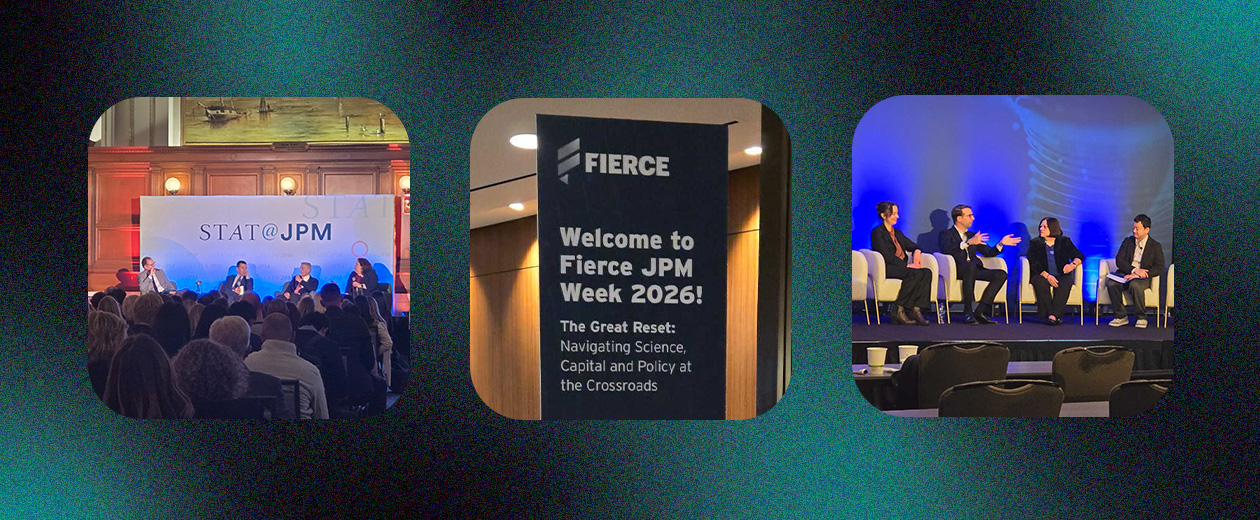
February 2, 2026
February 2, 2026

Reading time
July 10, 2024
February 25, 2021

Every December, we poll our client executives for their takes on what the next year will bring to their business and the broader industry. Looking back at the last 12 months, “predictions” have taken on a new weight: 2020 was anything but predictable, and 2021 appears to be off to a similar start. It feels like no one could have predicted the impact Reddit would have on a single stock price, and completely subvert everything we thought we knew about how Wall Street works and who comes out on top. Crypto skeptics remain surprised at Bitcoin’s seemingly endless bull run, while beloved consumer finance apps have been met with major user backlash… and it’s only February. We can’t be sure what the next GameStop frenzy will be, but the macro trends our execs expect to see in 2021 can ride whatever bull comes their way.
Whether it was taking time to understand stimulus checks or doing away with physical bank branch locations, consumers saw a big shift in the way they interacted with their financial institutions last year. “COVID-19 will be a catalyst for the wide adoption of consumer finance,” said Jillian Williams, Investment Principal at Anthemis. “This will create a new wave and new opportunity for consumer finance offers. We see companies such as Facebook filing patents for financial products, and we’re already seeing increased focus from employers on providing additional benefits surrounding financial services. We will see more people getting access to financial products from non-financial institutions, increasing where financial transactions will be done and increasing democratization of access for financial products.”
Consumers will come to expect more of the technology they use for financial transactions. In a year full of a lot of uncertainty, consumers wanted products and services that didn’t just improve access but also prioritized education or offered any form of guidance or advice. “They will value companies that free time up from having to manage drudge work themselves, and who communicate and support them by offering easily accessible guidance and access to financial professionals,” said Betterment’s Head of Behavior Finance Dan Egan.
[Consumers] will value companies that free time up from having to manage drudge work themselves, and who communicate and support them by offering easily accessible guidance and access to financial professionals.
Dan Egan, Head of Behavior Finance, Betterment
In the wake of the 2008 financial crisis, financial services dramatically unbundled. Consumers wanted less concentration, were skeptical of big banks, and readily embraced startups that specialized in a single service. In the past few years we’ve witnessed increasing consolidation as companies realize a single service may not be profitable in the long-term. 2020 seemed to have accelerated this rebundling, as more companies looked to either add new services, bring on partnerships, or make smart acquisitions to meet consumer demands and grab a larger slice of the pie.
Mike Reust, President of Retail at Betterment believes this will play out in stronger partnerships between legacy banks and neobanks: “The economic crisis this year emphasized the importance of financial and cash management. We’re going to see more companies attract customers by offering to manage their cash, investments, and retirement funds under one roof. Companies will be able to deliver better, holistic advice on customers’ long-term goals by getting a full picture of their finances. This also means stronger integration between investing and banking services at both legacy financial institutions and newer fintechs.”
Dosh CEO Ryan Wuerch agrees partnerships and integrations will be the top way this plays out. In Forbes he writes, “to keep up with digital transformation, companies across industries often have to decide whether they are going to build their own new digital products, buy a smaller company that already has the desired technology or partner with an adjacent player to take care of the customer-experience need. And fintech is no different.
“The argument against build is that software is tremendously expensive to develop, and it takes companies months, if not years, to accomplish. And while acquiring a fintech solution might seem like an easy fix, it comes with the kinds of return-on-investment risks that keep CEOs up at night. In 2021, I believe an increasing number of players will choose the partnership route. The build-buy-partner construct underscores how all companies — retailers, insurers, financial institutions, etc. — are now tech companies. And when a fintech partner is a good fit, it means they don't have to take the risk that comes with building or buying the tools they need.”
Fintech’s digital revolution sped up dramatically in 2020. With in-person branch visits no longer an option, banks had to digitize offerings quickly in order to meet customer demand. While stock trading apps have existed for years, we saw engagement skyrocket on digital finance apps.
As a result of this acceleration and “new norm,” we’ll see the rapid adoption of more digital payments and processes in industries we don’t traditionally think of as “fintech.” Take online shopping for example. Anthemis’ Jillian Williams looks at this from the perspective of a fintech VC: “Given the substantial rise of Ecommerce transactions this year, there is more opportunity at the intersection of ecommerce and fintech. Whether it is alternative payment methods, improved logistics, or better underwriting for businesses, there is a lot of opportunity in the Ecommerce space.”
Waystar CEO Matt Hawkins sits at the intersection of healthcare and fintech. He saw first-hand how COVID only magnified how broken healthcare payments are, and he sees the consumerization of fintech impacting healthcare too. Consumers are accustomed to seamless transactions, and healthcare payments have to catch up: “With the final price transparency rule going into effect next year, we’ll see a massive demand for technology that provides patients with real transparency around their healthcare bills — including accurate, personalized estimates of what they’ll owe and easy, consumer-friendly ways to pay.”
Another surprising mega-trend of 2020 was the mass exodus from cities as more workers embraced the flexibility of remote work. As Kiran Vattem, the Chief Digital and Technology Officer at ServiceLink, pointed out, “low mortgage rates and homeowners’ growing desire to move to suburbs is driving today’s booming residential real estate market, with no plans to slow in 2021.” Rapid digitization within this industry has made financial transactions more seamless and accessible, but comes with potential risk: “While COVID-19 has accelerated digital adoption across the mortgage lifecycle — making real estate transactions more automated and streamlined — it has also opened the industry up to new security vulnerabilities and potential for hackers to access sensitive data. In 2021, the industry’s focus will probably shift in order to balance front-end innovation with the tech that can be leveraged to fortify the mortgage ecosystem from cybersecurity risks in an increasingly digital future.”

January 28, 2026
January 28, 2026

January 8, 2026
January 8, 2026